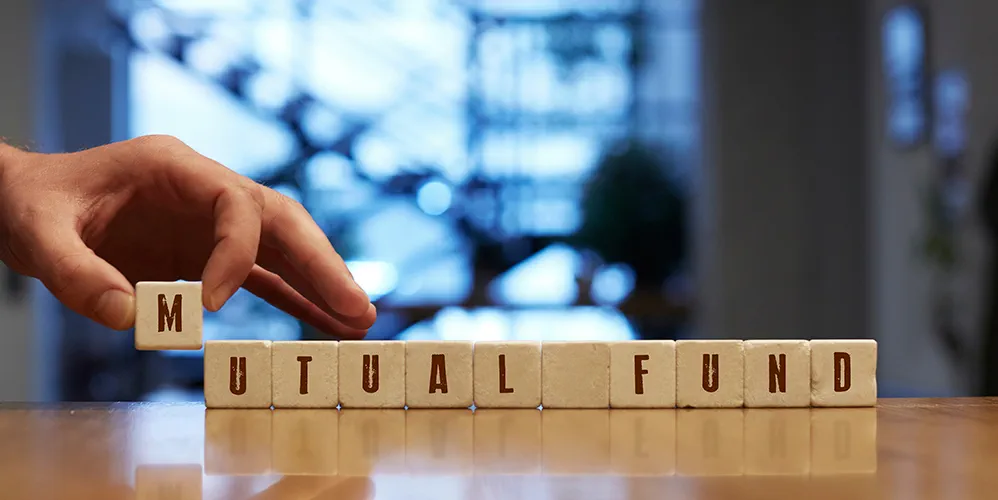
Complete Guide on Fixed Deposit (FD)
14 Apr 2023

Table of Content
-
What is Fixed Deposit (FD)?
-
How Does a Fixed Deposit Account Work?
-
Benefits of Fixed Deposit (FD)
-
Types of Fixed Deposit (FD)
-
How to Open Fixed Deposit (FD) Account?
-
Who is Eligible for FD?
-
Documents Required for Fixed Deposit
-
How is Interest of Fixed Deposit (FD) Calculated?
-
What Does Loan Against FD Mean?
-
Taxation on FD Earnings
-
Conclusion
-
Frequently Asked Questions (FAQs)
In India, fixed deposits (FDs) are considered one of the safest ways to invest one's hard-earned money. FDs are not only easy to begin, but they also offer good returns too. If one's priority is to save money to meet their financial goals without taking risks while receiving guaranteed returns, then investing in an FD is one of the best options.
However, only a few people are thoroughly aware of how an FD works or exactly what the meaning of a fixed deposit is. Thus, here's an article that comprehensively explains the various aspects of FD.
What is Fixed Deposit (FD)?
A fixed deposit is a type of deposit in which a sum of money is locked for a fixed period of time. However, the tenure for the fixed deposit is decided by the person who invests his funds. This tenure could be anywhere from a few days to several years. In return for locking in these funds, fixed deposits pay the depositor a fixed rate of interest. Once the term comes to maturity, the account holder or depositor receives the invested principal sum with maturity interest.
A fixed deposit is one of the most popular investment avenues in India, particularly among risk-averse middle-class investors. How does fixed deposit work? Let’s take a look.
How Does a Fixed Deposit Account Work?
For that we have to understand that there are two parties involved here. One is the bank and the other is the customer. Banks need money, which they lend to borrowers from whom they charge interest. Banks obtain that money from its customers mainly through various accounts – current account, savings account etc.
One way of obtaining that money is through fixed deposits for which they offer certain rates of interest. The funds that they get is lent to borrowers for a slightly higher rate of interest. The difference between the interest rate on FDs and on loans is called the spread, which is the bank’s earnings.
How does fixed deposit work? If you have some spare cash and want to invest in fixed deposits, there are many options available for you. You can deposit money for periods ranging from a few days to a few years. Of course, the interest rates for shorter periods will be lower than those offered on fixed deposits of longer maturities. For example, if you want an FD for 30 days, the interest rate could be around 6 percent. If the deposit is for a year, the interest rate could be 7 percent.
The interest rates charged by different banks vary, so you might have to do a comparison to find the best rate. However, differences tend to be small. Smaller banks, like cooperative banks, may offer higher rates of interest than the large banks. However, you must remember that there is a direct correlation between risk and returns. High interest rates will always mean a higher level of risk.
Whether or not you choose to invest in a fixed deposit depends on how much returns you are satisfied with, and the amount of risk you are prepared to bear. Generally, returns on fixed deposits are lower than other investment avenues like equity, but the risks too are lower.
Also Read - Difference Between FD and RD
Benefits of Fixed Deposit (FD)
The following are the benefits of fixed deposits -
- Assured Rate of Return
- Tax Threshold for Interest
- Flexible Tenure
- Easy Liquidation
Types of Fixed Deposit (FD)
In India, different types of fixed deposit schemes are available. One can invest in any one or more of these types of FDs as per their financial goals.
Listed below are some of the types of FDs one can apply for:
- Cumulative Fixed Deposit: In terms of Reserve Bank of India directives, interest shall be calculated at quarterly compounding intervals on Term deposits and paid at the rate decided by the Bank depending upon the period of deposits. In this scheme, the depositor gets the benefit to earn interest on both principal and interest components. Our bank is having Cumulative fixed deposit in the name of Baroda Regular Income cum Recurring Deposit.
- Non-cumulative Fixed Deposit: In this scheme / product interest is not accumulated but paid to the depositor at regular intervals. This ensures a passive income for the depositor. Our bank is having Non-cumulative fixed deposit in the name of Baroda Regular Income PLAN - Monthly Income Plan, Baroda Regular Income Plan - Quarterly Income Plan.
- Tax Saving Fixed Deposit: These fixed deposits come with a lock-in period of five years and are eligible for deductions under Section 80C of the Income Tax Act, 1961. The maximum amount of deduction that can be claimed is up to Rs. 1,50,000 /- per annum as per Income tax guidelines. Bank of Baroda is having the tax saving fixed deposit scheme in the name of Baroda Tax Savings Term Deposit Account.
- Flexi Fixed Deposit: Selective schemes of Savings and Current accounts have facility of Auto Sweep where balances above a certain threshold are swept out to Flexi Deposits in multiples of a sweep out account (Threshold amount ,Sweep out amount and deposit period are scheme specific ).Whenever the balance in savings /current account fall short below (stipulated balance requirement ) to clear any debits in the operative account ,the FFD can be broken in last in first Out (LIFO ) principle (in multiples of sweep amount specific to scheme )as per the guidelines of the Bank .
How to Open Fixed Deposit (FD) Account?
One can open a fixed deposit account by 1) visiting the nearest bank branch where they want to open their FD account, 2) through net banking, or 3) by using the mobile app of the bank where they are willing to open their FD account.
Who is Eligible for FD?
Eligibility to open a fixed deposit account is as follows:
- An individual in his own name.
- More than one individual in joint name.
- Minor of age 10 and above on terms laid down by the bank. Accounts can also be opened in the name of minor with their father/mother, as guardian.
- Clubs, associations, Educational Institutions, Partnerships and joint stock companies, provided they are registered, and bank is satisfied that the account is opened for genuine savings purpose.
Documents Required for Fixed Deposit
The documents required for a fixed deposit account are as follows:
The Customer should complete the KYC procedure with the OVD (Officially valid document) such as:
- The passport
- The driving licence
- Proof of possession of Aadhaar number
- The Voter's Identity Card issued by the Election Commission of India
- Job card issued by NREGA duly signed by an officer of the State Government
- Letter issued by the National Population Register containing details of name and address
Also, the documents required for completing the KYC depends on the constitution of the account.
How is Interest of Fixed Deposit (FD) Calculated?
The interest on an FD can be calculated in two ways: compound interest (CI) and simple interest (SI).
Banks might use both methods to calculate interest on FDs , depending on the deposited amount and the tenure.
Under the SI method, the interest is calculated using the formula below:
S.I. = (P×R×T)/100
where P = principal amount, T = time period (in years), and I = rate of interest.
For example, Mr. Ajay invests Rs. 5,000 at 7% p.a., for 4 years. To calculate the interest that Ajay will receive across 4 years, he will get to apply for the S.I. formula:
- Step 1: 5,000×7×4 = Rs. 140,000
- Step 2: 140,000 ÷ 100 = Rs. 1,400
Interest = Rs. 1,400.
Under the CI method, the interest is calculated by using the formula given below:
CI = P {(1+i/100)n -1}
where P = Principal Amount; n = number of years; and i = rate of interest
For example, Mr. Vinay invests Rs. 7,000 at 8% p.a. for 5 years. Then, under the CI method, the amount of interest that Mr. Vinay will earn can be calculated by using the CI formula:
7,000{(1+8/100)5 -1} = Rs. 3,285. 29.
Thus, the interest earned will be Rs 3,285. 29
One can easily calculate the interest one will receive on their FD amount by using online FD calculator.
Please refer our Bank’s website for calculation of FD maturity amount.
Must Check - Know Why do FD Interest Rate Changes Frequently
What Does Loan Against FD Mean?
A loan against a fixed deposit is a secured loan where one can pledge their FD as loan collateral and receive a loan amount in return.
If one fails to repay the loan, the bank will procure it from the FD amount. Banks offer a loan against a fixed deposit by charging a nominal interest, and the amount of loan one can avail ranges from 75% to 95 % of the value of one's FD, depending on the bank.
A loan against a fixed deposit is extended to all FD holders. However, FD in the name of a minor does not qualify for this facility. Moreover, a loan against an FD has lower interest rates, zero prepayment penalties, and processing charges.
Taxation on FD Earnings
The returns on FDs are taxable under the Income Tax Act of 1961. The interest accrued on the FD is adjacent to the "income from other sources" category and is taxed per the investor's income tax slab provisions.
In addition, if the total interest earned on the FD exceeds Rs. 40,000 for individuals (other than senior citizens), banks deduct 10% TDS when the interest is credited to the investor's FD account.
In the case of senior citizens, the threshold amount is Rs. 50,000. If the total interest earned on the FD is less than Rs. 40,000, then no TDS will be deducted from the interest amount. However, the interest would be taxed as per the investor's income tax slab.
If one's interest income from an FD is above Rs. 40,000, one must submit their PAN details to the concerned bank.
If one does not furnish their PAN card in such cases, a 20% TDS on FD interest will be deducted from the total interest amount. After this, one's earnings will be subject to taxation as per the income tax slab.
The above points are subject to change as per extant guidelines.
Also Read - What is Tax Saving Fixed Deposit (FD)?
Conclusion
Now that we have explained what a fixed deposit is and how does it work, you can go ahead and open one. The process is straightforward and simple. If you have a savings account with your bank, you can open an FD with just a few clicks of your mouse. You can open an FD in other banks as well, but you have to open a savings account first. FDs are a good investment and should be part of any investor’s portfolio.
Frequently Asked Questions (FAQs)
1. Is FD transferable?
- FDs are transferable from one branch to another of the same bank. You must contact the branch manager of your bank from where your FD was made and apply with a written request for transfer along with the FD receipt. Once the account is verified the account will be transferred to your requested branch.
- FDs cannot be transferred from one bank to another bank. In such a situation you will be required to prematurely close the FD from the bank and open a fresh FD in another bank.
2. What should be done if the account holder is not alive by the time of maturity?
If the account holder is not alive at the time of maturity, then the nominee can come forward and claim the maturity amount. However, if the investor didn't choose a nominee, then family members of the deceased have to produce a succession certificate or legal heir proof to claim the maturity amount.
3. What are the minimum and maximum deposit amounts for FDs?
The minimum deposit amount for FDs differs from bank to bank. Moreover, there is no maximum limit to the amount of money one can invest in FD.
4. What is an FD nomination?
An FD nomination is the process of appointing a nominee by the account holder so that if the account holder dies, the maturity amount can be withdrawn by the nominee.
Popular Articles
-
Disclaimer
The contents of this article/infographic/picture/video are meant solely for information purposes and do not necessarily reflect the views of Bank of Baroda. The contents are generic in nature and for informational purposes only. It is not a substitute for specific advice in your own circumstances. Bank of Baroda and/ or its Affiliates and its subsidiaries make no representation as to the accuracy; completeness or reliability of any information contained herein or otherwise provided and hereby disclaim any liability with regard to the same. The information is subject to updation, completion, revision, verification and amendment and the same may change materially. The information is not intended for distribution or use by any person in any jurisdiction where such distribution or use would be contrary to law or regulation or would subject Bank of Baroda or its affiliates to any licensing or registration requirements. Bank of Baroda shall not be responsible for any direct/indirect loss or liability incurred by the reader for taking any financial decisions based on the contents and information mentioned. Please consult your financial advisor before making any financial decision.











Leave a Comment
Thanks for submitting your details.